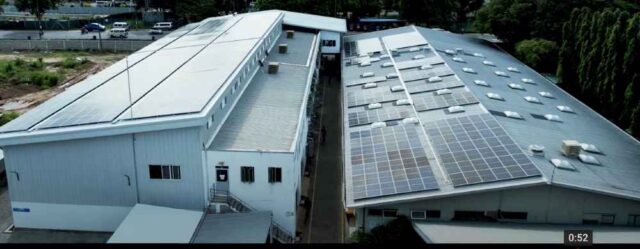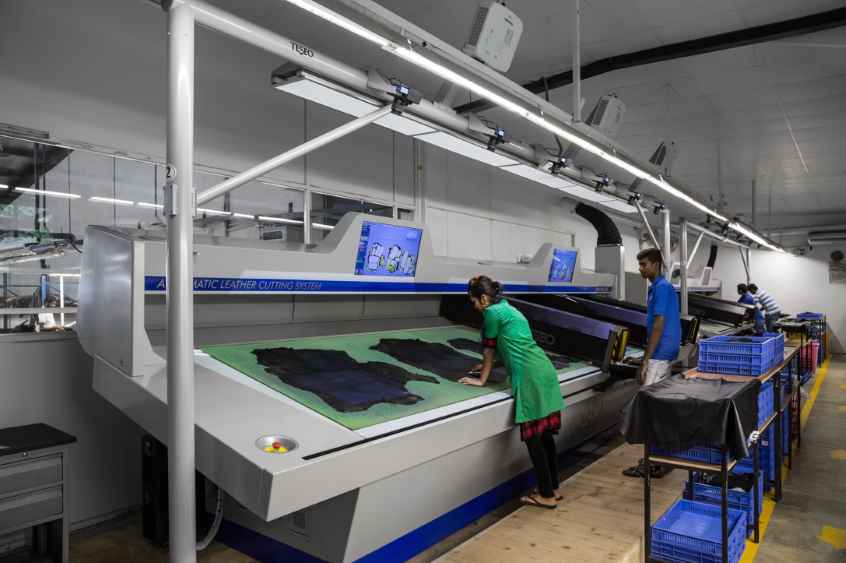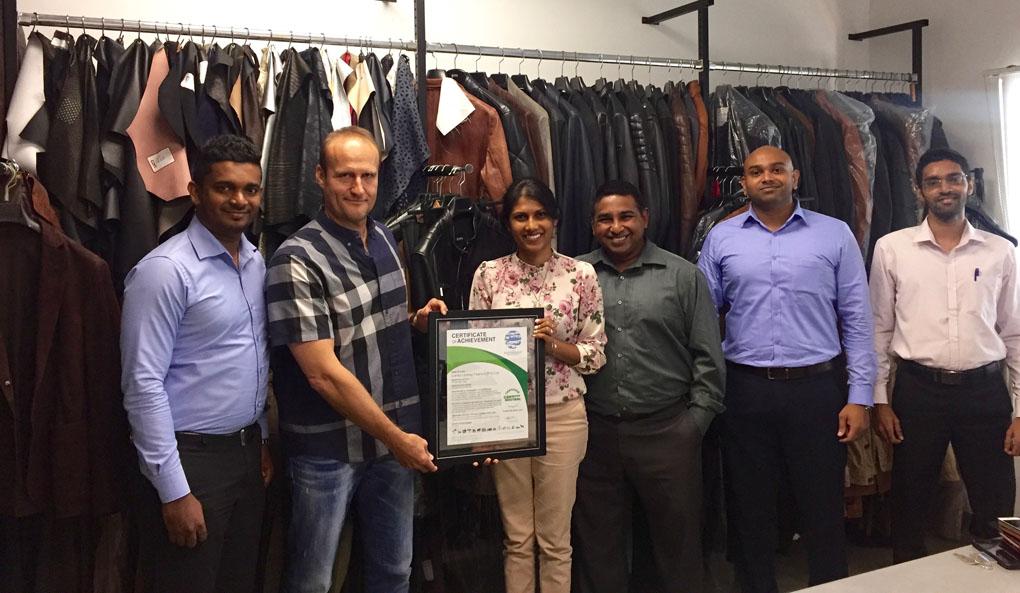Manufacturing high-end leatherwear since 1982; asserts country remains top spot for investors
When Sri Lanka opened its Free Trade Zones in Katunayaka, Biyagama and Koggala in the mid ‘70s and ‘80s, the country’s unique geographic location proved to be the biggest advantage to prospective foreign investors who saw immense potential in the tiny island. Being one of the first countries to establish FTZs in the South Asian region located at the crossroads of the major shipping routes to South Asia, the Far East and the European and American continents, major shipping lines and airfreight services used Sri Lanka as a convenient port of call en-route to major trading hubs.
Lanka Leather Fashion (Pvt) Limited was amongst those investors who envisaged the potential of Sri Lanka and was one of the first to establish operations in the Katunayake FTZ in 1982. Being the oldest leading manufacturers of high-end leather apparel, Director of Lanka Leather Fashion Marco Weidemann remembers his father setting up operations in Sri Lanka with unbridled conviction as Sri Lanka had no import or export restrictions and operated well within a liberalized trading economy.

“The talent pool in the 1980s and the high literacy rate compared to other regions were the other advantages, which also meant a win-win formula for both Sri Lanka and our company,” says Marco Weidemann. “We were able to assist in meeting the high demand for employment, while the Sri Lankan workforce, macro operating environment and strategic location was the foundation for operating a large scale manufacturing plant which met the high standards demanded by the European fashion industry.”
Director Duncan Fraser adds that at the time, “Manufacturing in neighbouring countries like India and Pakistan were not options for Lanka Leather Fashion as FDIs were not favoured in those regions. What we did however was work on a seamless supply chain by sourcing our leather from those countries and manufacture our products in Sri Lanka. Because Sri Lanka had less bureaucracy compared to the rest of South Asia, it made sense for us to establish operations because of our proximity to the leather sourcing regions.”
However, the war began a year later and dragged on for three long decades in which, Marco Weidemann says financial and manufacturing entities including FDIs were left well alone to continue their operations. Being in close proximity to both the port and airport, he says at no time were they in any fear of not meeting orders as the entire process from sourcing to shipping was implemented without any interruption.
“Sri Lanka has generally been fully supportive towards operational businesses, but successive governments have made ad-hoc policy decisions and continually changed taxation structures which doesn’t argue well from an FDI perspective. Any FDI requires stability and continuity and those are two focal points that any government should remember when reaching out to FDIs.”
Marco Weidemann remains absolutely confident and optimistic about Sri Lanka. “The core reasons for us being here have not changed. Some of the country’s strong suites including the workforce and their literacy, easy access to markets and the ease and efficiency of importing and processing raw materials continue to be in place. Even with the price hikes in the overall logistics industry during the pandemic which was a global crisis and Sri Lanka’s more recent economic crisis, manufacturers continue to operate without hindrance.”
He added that the government making arrangements to ensure smooth operations for exporters by providing facility to purchase diesel direct from oil companies in USD augmented the confidence the company felt in operating in Sri Lanka.
With a 650 strong workforce and notwithstanding the unprecedented challenges Sri Lanka was going through, Lanka Leather retained its workforce, paid full remuneration and gave bonuses in full. “We are well aware of the spiralling inflation translating into considerable increase in the cost of living”. To assuage some of the daily problems our employees face including sourcing essential requirements, we introduced a cost of living allowance over the basic salary each month and added transport solutions to ensure they are able to report for work.”
While Sri Lanka continues to climb an uphill battle to achieve economic stability and boost social prowess, it is foreign investors who have seen the promise of the country and remained in situ for decades who will write that testament of confidence on behalf of Sri Lanka. The country is not just about a strategically advantageous location but also about higher literacy rates and a highly trainable workforce and as Lanka Leather Fashion have mentioned, “being able to run operations smoothly despite a troubled environment is truly gratifying.”




